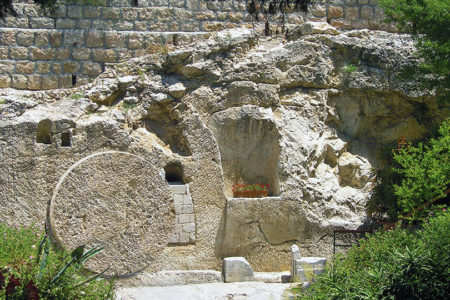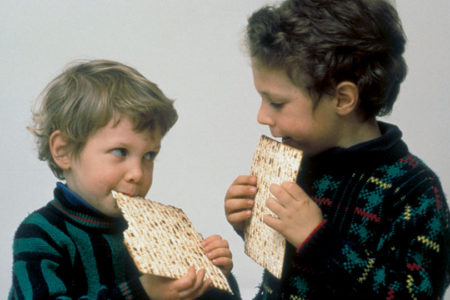God Is Jealous Part One
At least 29 biblical passages indicate that the God of the Bible is a jealous God. Of those passages, 28 are in the Old Testament. Only one is in the New Testament (1 Cor. 10:22).
This contrast signifies that God’s jealousy is primarily the concern of the Old Testament division of the Bible, not the New Testament. The reason is because the Old Testament relates God’s jealousy overwhelmingly to His relationship with Israel.
According to New Testament scholar Albrecht Stumpff, “Linguistic analysis has yielded the following results in relation to the OT” expression Yahweh is jealous: “When the reference is to Yahweh, it is almost always a question of His relations to His people Israel.”1
Meanings Related to Jealousy
The major Hebrew word for “jealousy” in the Old Testament is the verb qana. Depending on its context, it can mean to be jealous, envious, or zealous.2 Old Testament scholar Leonard J. Coppes said,
This verb expresses a very strong emotion whereby some quality or possession of the object is desired by the subject. This root occurs eighty-seven times….The term may be used in a purely descriptive sense to denote one of the characteristics of living men (Eccl. 9:6), or in a derogatory sense to denote hostile and disruptive passion (Prov. 27:4) or in a favorable sense to denote consuming zeal focused on one that is loved (Ps. 69:9).3
Thus, zeal to protect or benefit another person or thing that is loved is a favorable sense. An example was Jehu’s “zeal for the Lᴏʀᴅ” (2 Ki. 10:16). But zeal to take what belongs to another has the sense of envy. (See Genesis 30:1; 37:11; Ezekiel 35:11.) And zeal for one’s own property, such as a spouse who was taken away, has the sense of jealousy (Num. 5:12–14).4
Although qana has different meanings, Coppes pointed out that “the central meaning of our word, however, relates to ‘jealousy’ in the marriage relationship.”5
The Bible indicates that a man and woman become husband and wife through the establishment of a marriage covenant (Prov. 2:16–17; Mal. 2:14–16). The covenant is both parties’ binding commitment to give themselves exclusively to each other. The wife becomes the property of her husband, and the husband becomes the property of his wife.
If the wife becomes unfaithful by giving herself to another man, she thereby violates her binding commitment of the marriage covenant, commits adultery, and robs her husband of his property. If the husband becomes unfaithful by giving himself to another woman, he violates his binding commitment, commits adultery, and robs his wife of her property.
Such unfaithfulness can stir up strong jealousy within the offended spouse (Num. 5:11–31). Proverbs 6:32–35 describes the jealousy of a husband toward a man who has committed adultery with the husband’s wife:
Whoever commits adultery with a woman lacks understanding; He who does so destroys his own soul. Wounds and dishonor he will get, and his reproach will not be wiped away. For jealousy is a husband’s fury; therefore he will not spare in the day of vengeance. He will accept no recompense, nor will he be appeased though you give many gifts.
God’s Marriage With Israel
The Bible draws an analogy between the husband-wife relationship and God’s relationship with Israel. Just as a man and woman become husband and wife through the marriage covenant, so there is a sense in which God and Israel became husband and wife through the establishment of a covenant.
The “marriage” took place at Mount Sinai when God and Israel entered into a binding commitment to each other through the Mosaic Covenant. Moses performed the “wedding” ceremony by functioning as the intermediary between God and Israel (Ex. 19:1—20:17; Dt. 5:2–5). In a marriage covenant, a man vows to enter into a unique, exclusive relationship with one specific woman. He will not grant this relationship to any other woman. So, too, in the Mosaic Covenant, God vowed to enter into a unique, exclusive relationship with Israel—one He would not grant to any other nation. He declared, “You shall be a special treasure to Me above all people; for all the earth is Mine. And you shall be to Me a kingdom of priests and a holy nation” (Ex. 19:5–6).
Later Moses told the people of Israel, “You are a holy people to the Lᴏʀᴅ your God; the Lᴏʀᴅ your God has chosen you to be a people for Himself, a special treasure above all the peoples on the face of the earth” (Dt. 7:6).
The root of the word translated “holy” means “to divide.”6 Thus to be holy is to be divided from other persons and things in the sense of being different, distinct, even unique. God divided Israel from all other nations with the intent that it be different, distinct, and unique in contrast with all other nations. The other nations were devoted to worshiping false gods. God intended Israel to be devoted exclusively to worshiping Him, the only God who actually exists.
The plagues God sent on Egypt were designed to show Israel that Egypt’s gods were false and nonexistent and that He was the only God who truly exists. He further revealed the truth of His existence by supernaturally delivering the Israelites from Pharaoh’s clutches.
Just as in the marriage covenant the woman vows to enter into an exclusive, unique relationship with one specific man, so in the Mosaic Covenant the Israelites vowed to enter into an exclusive, unique relationship with God. God said to them,
I am the Lᴏʀᴅ your God, who brought you out of the land of Egypt, out of the house of bondage. You shall have no other gods before Me. You shall not make for yourself a carved image—any likeness of anything that is in heaven above, or that is in the earth beneath, or that is in the water under the earth; you shall not bow down to them nor serve them. For I, the Lᴏʀᴅ your God, am a jealous God (Ex. 20:2–5).
After Moses told the Israelites “all the words of the Lᴏʀᴅ and all the judgments,…all the people answered with one voice and said, ‘All the words which the Lᴏʀᴅ has said we will do’” (24:3). They vowed to worship Yahweh exclusively and affirmed their Mosaic Covenant relationship with Him.
Thus, through the establishment of the Mosaic Covenant, God and Israel were married spiritually. Yahweh became Israel’s God, and Israel became His people.
Israel’s Adultery
However, just as a wife violates her marriage covenant by giving herself to another man—thereby committing adultery and robbing her husband of his property—so, too, the people of Israel violated their binding commitment of the Mosaic Covenant by unfaithfully giving themselves to the worship of false gods. They committed spiritual adultery and robbed God of His property.
God foretold this event: “This people will rise and play the harlot with the gods of the foreigners of the land, where they go to be among them, and they will forsake Me and break My covenant which I have made with them” (Dt. 31:16).
Judges 2 records the fact that, after Israel invaded Canaan and settled there, “the people served the Lᴏʀᴅ all the days of Joshua, and all the days of the elders who outlived Joshua, who had seen all the great works of the Lᴏʀᴅ which He had done for Israel” (v. 7). However,
Another generation arose after them who did not know the Lᴏʀᴅ nor the work which He had done for Israel. Then the children of Israel did evil in the sight of the Lᴏʀᴅ, and served the Baals; and they forsook the Lᴏʀᴅ God of their fathers, who had brought them out of the land of Egypt; and they followed other gods from among the gods of the people who were all around them, and they bowed down to them; and they provoked the Lᴏʀᴅ to anger. They forsook the Lᴏʀᴅ and served Baal and the Ashtoreths (vv. 10–13).
God responded to this unfaithfulness by delivering Israel into the hands of its nearby enemies (vv. 14–15). We must remember, however, that God always has a faithful remnant; and in every generation there have been Jewish people who have been faithful to Him.
In Ezekiel 16 God spoke to Jerusalem, describing how the capital city later became unfaithful to Him: “Your time was the time of love; so…I swore an oath to you and entered into a covenant with you, and you became Mine” (v. 8). As a loving husband, God cared and provided for her magnificently (vv. 9–14). But she became unfaithful by giving herself to spiritual harlotry through pagan worship (vv. 15–19).
She resorted to burning children alive as sacrifices to false gods (vv. 20–21). She had high places of false worship in every one of her streets (vv. 22–25, 31). She committed spiritual harlotry by entering into forbidden alliances with foreign, idolatrous nations (vv. 26–29). Whereas an adulterous wife is paid for her services, Jerusalem paid foreign nations to enter into alliances with her (vv. 32–34). God said to Jerusalem, “How degenerate is your heart!…seeing you do all these things, the deeds of a brazen harlot” (v. 30).
God also declared, “Because your filthiness was poured out and your nakedness uncovered in your harlotry with your lovers, and with all your abominable idols, and because of the blood of your children which you gave to them,…I will judge you as women who break wedlock or shed blood are judged; I will bring blood upon you in fury and jealousy” (vv. 36, 38).
He would do so by bringing against the city the very nations with which she committed spiritual harlotry (vv. 37–41). This judgment would cause His fury toward Jerusalem to rest and His jealousy to depart (v. 42). This was the price Jerusalem would pay for “despis[ing] the oath by breaking the covenant” (v. 59).
The next article will continue the biblical account of Israel’s unfaithfulness and God’s jealous response.
ENDNOTES
- Albrecht Stumpff, ”zelos,” Theological Dictionary of the New Testament (hereafter cited as TDNT), ed. Gerhard Kittel, ed./trans. Geoffrey W. Bromiley, translated from Theologisches Worterbuch zum Neuen Testament (Grand Rapids, MI: Eerdmans, 1964), 2:879.
- Leonard J. Coppes, “qana,” Theological Wordbook of the Old Testament, R. Laird Harris, Gleason L. Archer Jr., and Bruce K. Waltke (Chicago: Moody Press, 1980), 2:802.
- Ibid.
- Ibid.
- Ibid.
- Otto Procksch, “hagios,” TDNT, 1:89.







